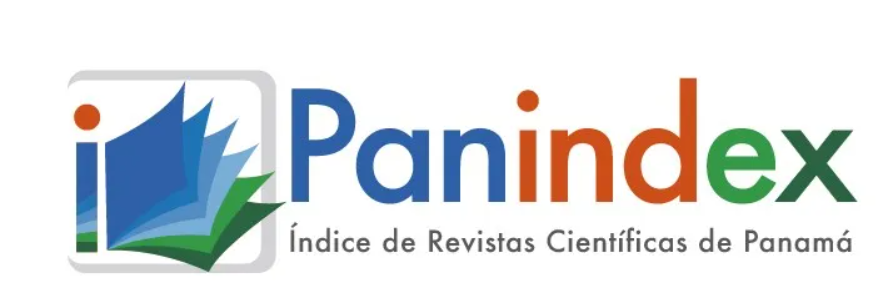The content of the publications and the links suggested in them are the sole responsibility of the authors and not of the METROPOLITAN UNIVERSITY OF EDUCATION, SCIENCE AND TECHNOLOGY (UMECIT) or CATHEDRA magazine. They are protected by international copyright laws just as the UMECIT and CATHEDRA logos, hence their reproduction is totally prohibited
This work is licensed under a Creative Commons Attribution-NonCommercial-NoDerivatives 4.0 International License.
The authors maintain the copyright and transfer the right of the first publication to the journal, with the article registered with Creative Commons Attribution-NonCommercial-NoDerivatives License, which allow others They can download the works published in this magazine and share them with other people, as long as their authorship is recognized, but they cannot be changed in any way nor can they be used commercially.
Authors are recommended to include their work in social networks such as Researchgate and institutional repositories once the article or visible fact has been published on the journal page, without forgetting to include the digital document identifier and the name of the journal.



Abstract
It is imperative that both students and researchers delve into the topic of research: how to investigate, what to investigate and what to do, instill the scientific spirit that must be the essence of higher education. The importance of knowledge and the application of research methods and techniques in the field of law and forensic sciences lie in the acquisition of the necessary tools for the efficient performance of professional practice. This means that not only will these tools be useful for accrediting a subject or obtaining an academic degree, but when they are learned during academic training they will also be put into practice as an applicant or litigator, as a judicial operator, as a legal advisor in Legislative congresses or in public or private administration and, no doubt, as a teacher and researcher. Research is a valid and recommended procedure for all fields of study, whether humanistic or scientific. It can be done during the class period or in separate periods depending on the circumstances and possibilities of the academic field. Research involves the development of a special, systematic, controlled, empirical and critical activity, guided by concepts and categories, ordered by a procedural strategy and aimed at producing scientific knowledge about an aspect or area of reality or solving practical problems of it.
References
Ander-egg, Ezequiel, (1990). Técnicas de investigación social, Alicante, Gráficas Díaz.
Aparisi, Ángela et al., (1992). Introducción a la teoría del derecho, Valencia, Tirant lo Blanch.
ATienza, Manuel, (2001). El sentido del derecho, Barcelona, Ariel.
ATienza, Manuel. (1989). Introducción al derecho, Barcelona, Ariel.
Bascuñán Valdés, Aníbal, (1961). Manual de técnicas de investigación jurídica, Santiago de Chile, Ediciones Jurídicas.
BoBBio, N., (1980). Contribución a la teoría del derecho, trad. A. Ruiz Miguel, Valencia, Fernando Torres Editor.
Bueno, G., (1995). ¿Qué es la ciencia?, Oviedo, Pentalfa.
BunGe, Mario, (1975). La ciencia, su método y su filosofía, Buenos Aires, Siglo XX. DanhKe, L. B., “Investigación y comunicación”, en Fernández-Collado, C. y DanhKe, G. Fix-zamudio, Héctor, (1971). “Reflexiones sobre la investigación jurídica”, Revista Jurídica Messis, No. 2, pp. 34-78.
Erlandson, D. A.et al., (1993). Doing naralistic inquiri, London, Sage, 1993.
GIRALDO ÁNGEL, J. (1999). Metodología y Técnica de la Investigación Jurídica. Bogotá, Colombia: Ediciones Librería el Profesional.
Hernández Sampieri, R., Fernández-collado, C., Baptista Lucio, Pilar, (2003). Metodología de la investigación, 3ra ed., México, McGraw-Hill.
La investigación científica, (1972). La Habana, Ciencias Sociales.
L., La comunicación humana: ciencia social, (1989). México, McGraw-Hill.
Larroyo, Francisco. (1959). Pedagogía de la enseñanza superior. México D. F. Universidad Nacional Autónoma de México, UNAM, 366 págs. Primera edición.
PÉREZ SERRANO, G. (1990). Investigación Cualitativa. Retos e Interrogantes. Madrid:
Editorial La Muralla.
Villoro, Juan. (2017). La vida que se escribe. Edit El Colegio Nacional. 2da edición. México
Downloads
Publication Facts
Reviewer profiles N/A
Author statements
- Academic society
- Universidad Metropolitana de Educación, Ciencia y Tecnología
- Publisher
- Universidad Metropolitana de Educación, Ciencia y Tecnología




















